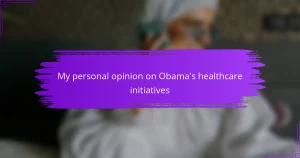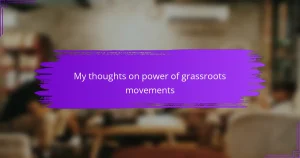Key takeaways
- Obama’s speeches blend hope and realism, utilizing storytelling to make political messages relatable and human.
- Key themes include hope, unity, and personal accountability, inspiring audiences to reflect on their roles in creating change.
- His communication style emphasizes pacing, inclusive language, and authenticity, fostering genuine connections with listeners.
- Applying these techniques, such as using pauses and storytelling, enhances personal communication and builds trust with the audience.
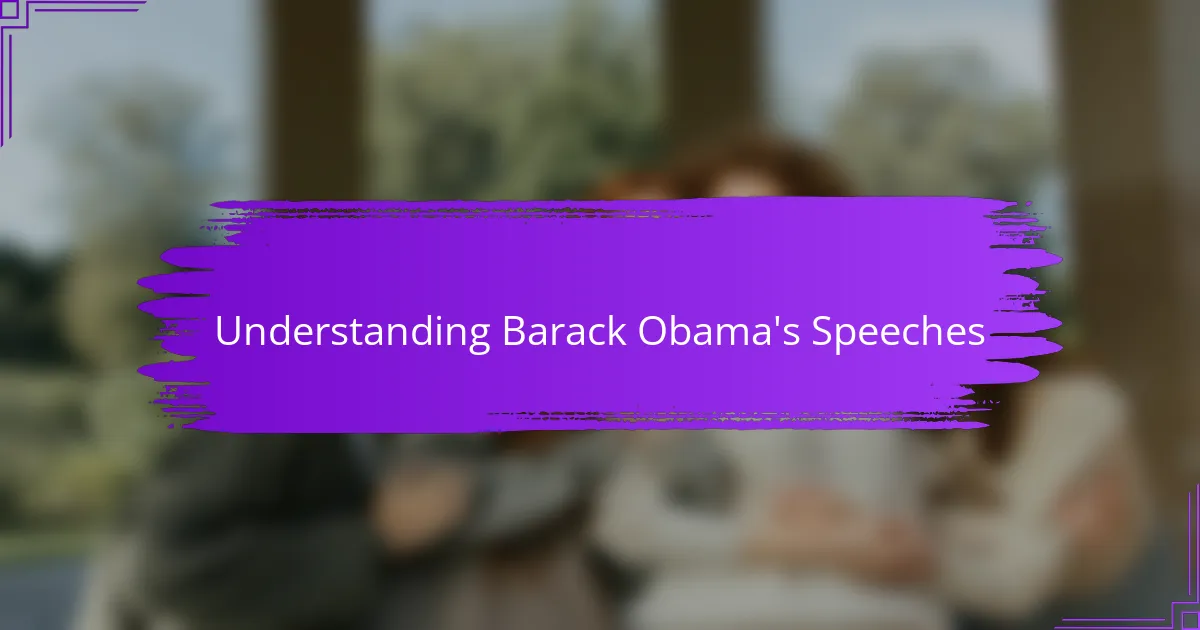
Understanding Barack Obama’s Speeches
Barack Obama’s speeches have this unique rhythm that immediately draws you in. Have you ever noticed how he balances hope and realism, making complex issues feel relatable? From my experience, it’s like he’s having a heartfelt conversation with each listener, not just delivering prepared lines.
What fascinates me is his skillful use of storytelling. I remember a speech where he shared a personal story about his family, and suddenly, the political message became deeply human. It made me reflect on the power of vulnerability in leadership.
I often wonder, what makes his words resonate so profoundly across diverse audiences? For me, it’s his ability to weave together vision, empathy, and a call to action, leaving you energized yet thoughtful—something I strive to emulate in my own communication.
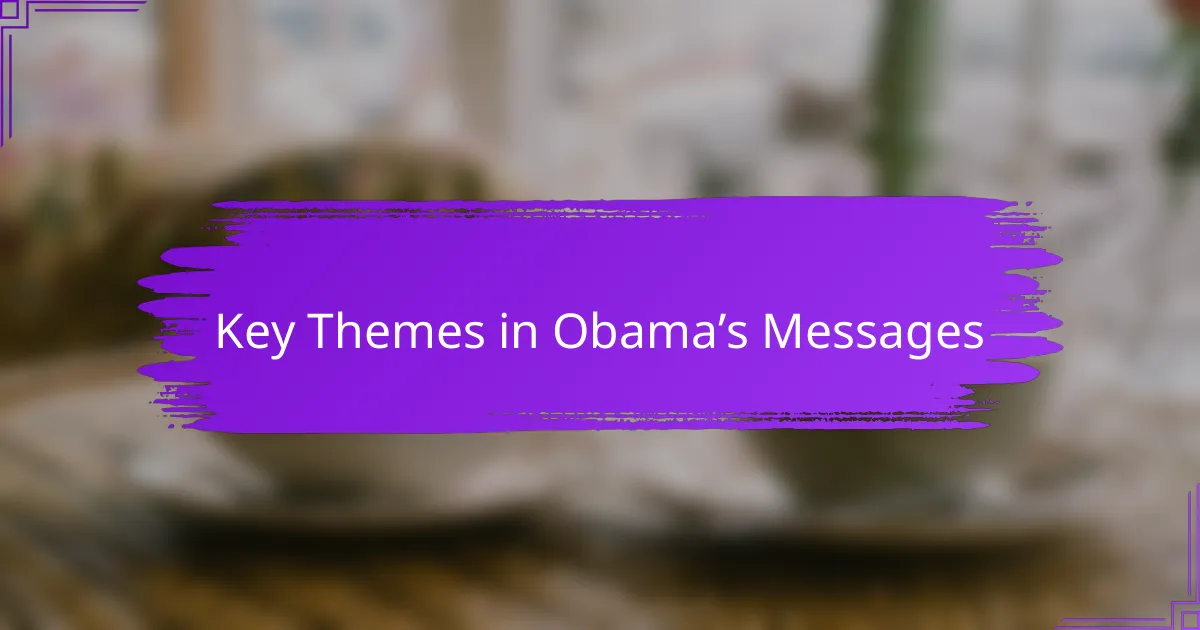
Key Themes in Obama’s Messages
One theme that always stands out to me is hope. Obama doesn’t just offer empty optimism; he acknowledges challenges but insists that we have the power to overcome them together. I remember hearing him speak about change during tough times, and it sparked a genuine sense of possibility in me, as if the future wasn’t set in stone.
Another thread I’ve noticed is unity. He often emphasizes our shared values and common goals, which feels especially important in a divided world. Have you ever felt like his words helped bridge gaps, reminding us that despite differences, we’re connected by something larger?
Then there’s accountability and responsibility. Obama calls on each of us, not just leaders, to play a role in shaping society. I’ve found this both inspiring and challenging—it made me ask myself, “What part do I really play in this bigger story?” That personal call to action is what makes his speeches stick with me long after they end.
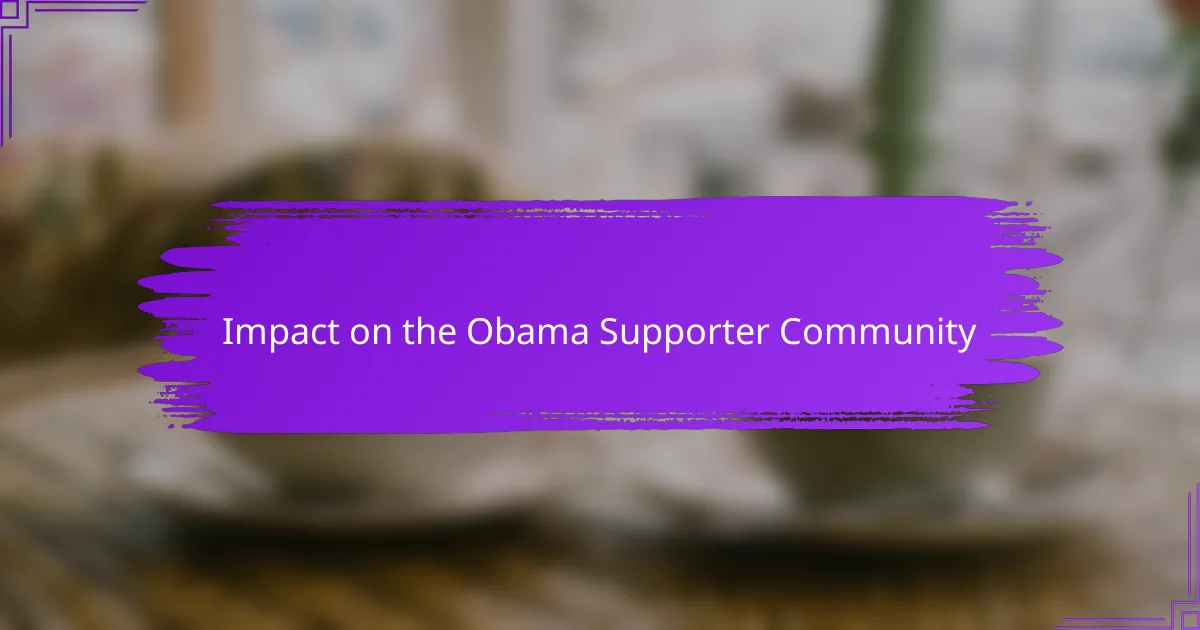
Impact on the Obama Supporter Community
The impact of Obama’s speeches on our community has been nothing short of transformative. I’ve seen how his words galvanized people around a shared sense of hope and purpose, creating bonds that went beyond politics. It’s like his speeches gave us a language to express our aspirations and frustrations together.
What struck me most was how his messages helped foster a genuine sense of belonging. During some of the toughest moments, I noticed friends and strangers alike turning to those speeches for reassurance—a reminder that we were not alone in wanting a better future. Didn’t you feel that too, a kind of collective heartbeat pulsing through the supporter community?
At times, his calls for personal responsibility sparked honest self-reflection within the group. I remember conversations where we challenged each other: “How can I contribute beyond just cheering from the sidelines?” It wasn’t just about passive support—it became a movement of active engagement, fueled by his words and the way they encouraged us to step up.
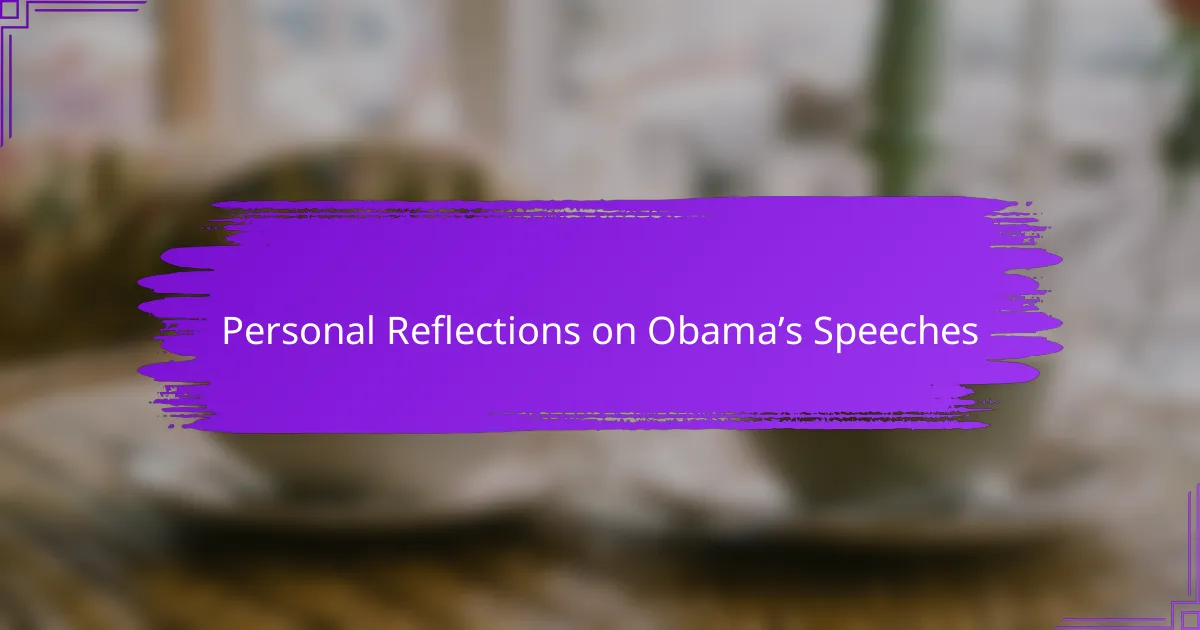
Personal Reflections on Obama’s Speeches
There have been moments when I replayed Obama’s speeches in my mind, especially during challenging times, and I found myself drawing strength from his words. Do you ever experience that surge of motivation when a leader’s message feels like it’s speaking directly to your own struggles? That’s exactly how his speeches have impacted me personally—like a private, inspiring conversation.
One particular speech stuck with me because of how candid and heartfelt he was. When he shared stories of change and perseverance, it wasn’t just political rhetoric; it felt honest and profoundly hopeful. It made me realize how vulnerability can forge trust and inspire deeper commitment from listeners, including myself.
Sometimes, after hearing him speak, I catch myself reflecting on my own role in the bigger picture. Have you ever found a leader’s words nudging you to question your impact? Obama’s speeches consistently encourage me to think beyond my immediate circle—reminding me that personal responsibility and hope can go hand in hand.
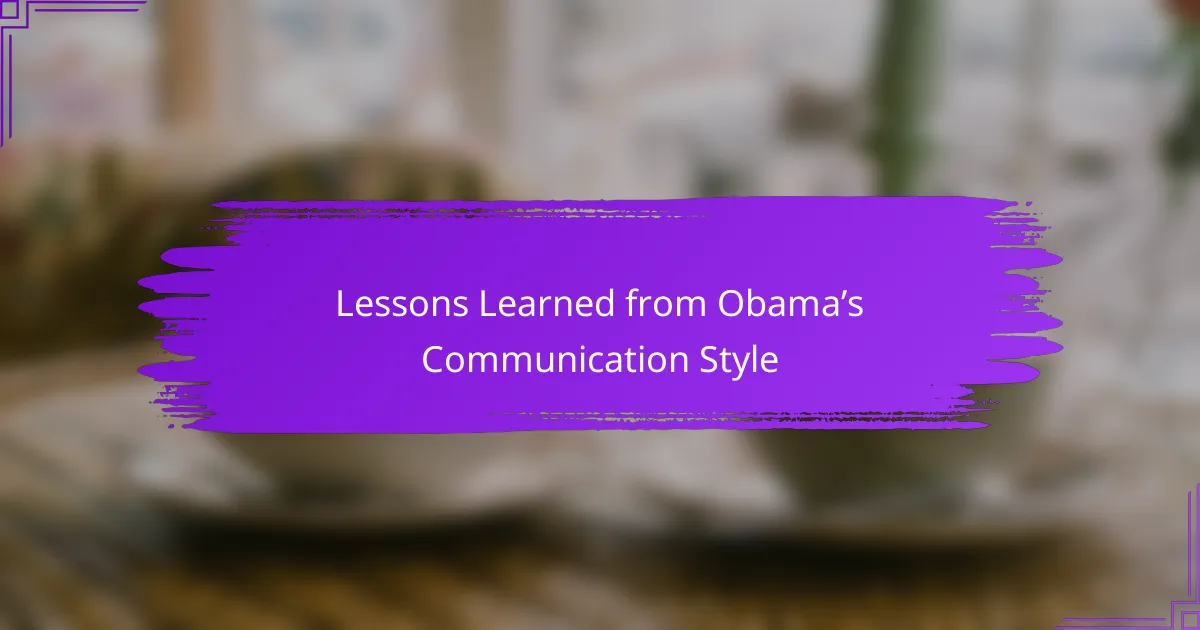
Lessons Learned from Obama’s Communication Style
One lesson I’ve learned from Obama’s communication style is the power of pacing. His measured delivery gives his words room to breathe, allowing you to absorb each idea fully. Have you ever noticed how a well-timed pause can make a message hit so much harder? That intentional rhythm creates space for reflection, something I’ve started trying to incorporate when I speak.
Another aspect that stands out is his use of inclusive language. Obama’s constant “we” and “us” make you feel part of something bigger. It’s as if he’s inviting you into a collective journey, which, honestly, changed how I view leadership—it’s less about commanding and more about connecting.
Lastly, I can’t ignore how authentic his tone feels. He doesn’t just speak at you; he speaks with you. I recall hearing a speech during a difficult time when his genuine concern seemed to cut through the noise, offering comfort rather than just rhetoric. It made me reflect on how authenticity can transform communication from mere words into real human connection.
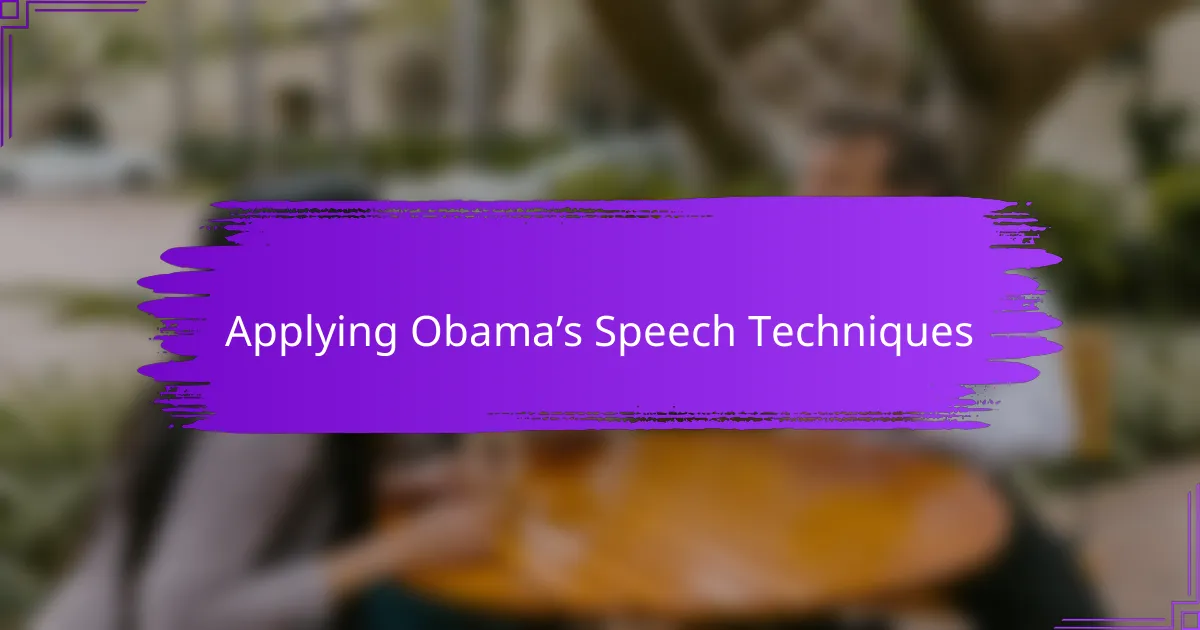
Applying Obama’s Speech Techniques
When I first tried to apply Obama’s speech techniques, I found that embracing his pacing made a big difference. Slowing down and allowing pauses gave my words more weight, just like his speeches taught me to value silence as much as sound. Have you ever noticed how a simple pause can draw attention and make your message linger?
Another technique I started using is inclusive language—the way Obama’s “we” and “us” make everyone feel involved. It’s incredible how shifting my words from “I” to “we” changed the way people responded to what I said. It made me realize leadership is really about building connections, not just broadcasting ideas.
Storytelling, too, became a game-changer in my communication. Sharing personal experiences, inspired by Obama’s candid style, helped me convey messages in a more relatable and heartfelt way. I remember one moment where opening up about a struggle created an unexpectedly deep sense of trust—we all want to feel understood, don’t we?
